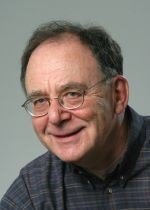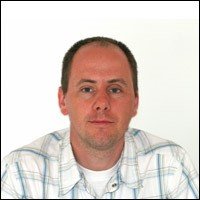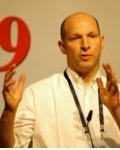Starting Life Sciences at CWI
What does city heating have to do with cancer research? How do cells know how to make a blood vessel - can they communicate and organize themselves? In January 2009, a new research group in the life sciences has started at CWI. We celebrate this with this year’s edition of the CWI Lectures in Mathematics and Computer Science. Turing Award winner Richard Karp will give a presentation on his research and his vision of this field. Alexander Anderson, specialist in mathematical oncology, will talk about novel interactions between mathematics, computer science and cancer research. CWI researchers Gunnar Klau and Roeland Merks will present examples from life science research at CWI.
You are all welcome to attend the meeting. Please mark 4 June in your diary!
Speakers:


Roeland M.H. Merks is group leader of the Biomodelling and Biosystems Analysis group at the Netherlands Institute for Systems Biology (NISB) and CWI. He has worked at universities in the Netherlands, Belgium, Japan and the USA. Merks’ group develops new biomodelling concepts and approaches, focusing on multiscale, cell-based modelling of biological form and function.
Life Sciences at CWI
CWI’s Life Sciences group is an interdisciplinary team of mathematicians, computer scientists, and theoretical biologists, comprising in total 30 researchers. Within this group algorithms, methods, and models are developed, and simulations for a wide range of biological topics are performed, with a strong focus on systems biology. CWI collaborates with a large network of researchers in biology and biomedicine − both individually and within national and international consortia, including the Netherlands Institute for Systems Biology.
